Working From Abroad
Those who come here know that the blogs here mainly have a technical angle. This time it’s a little bit different for me. Why? Because I started following my dream: Working from abroad.
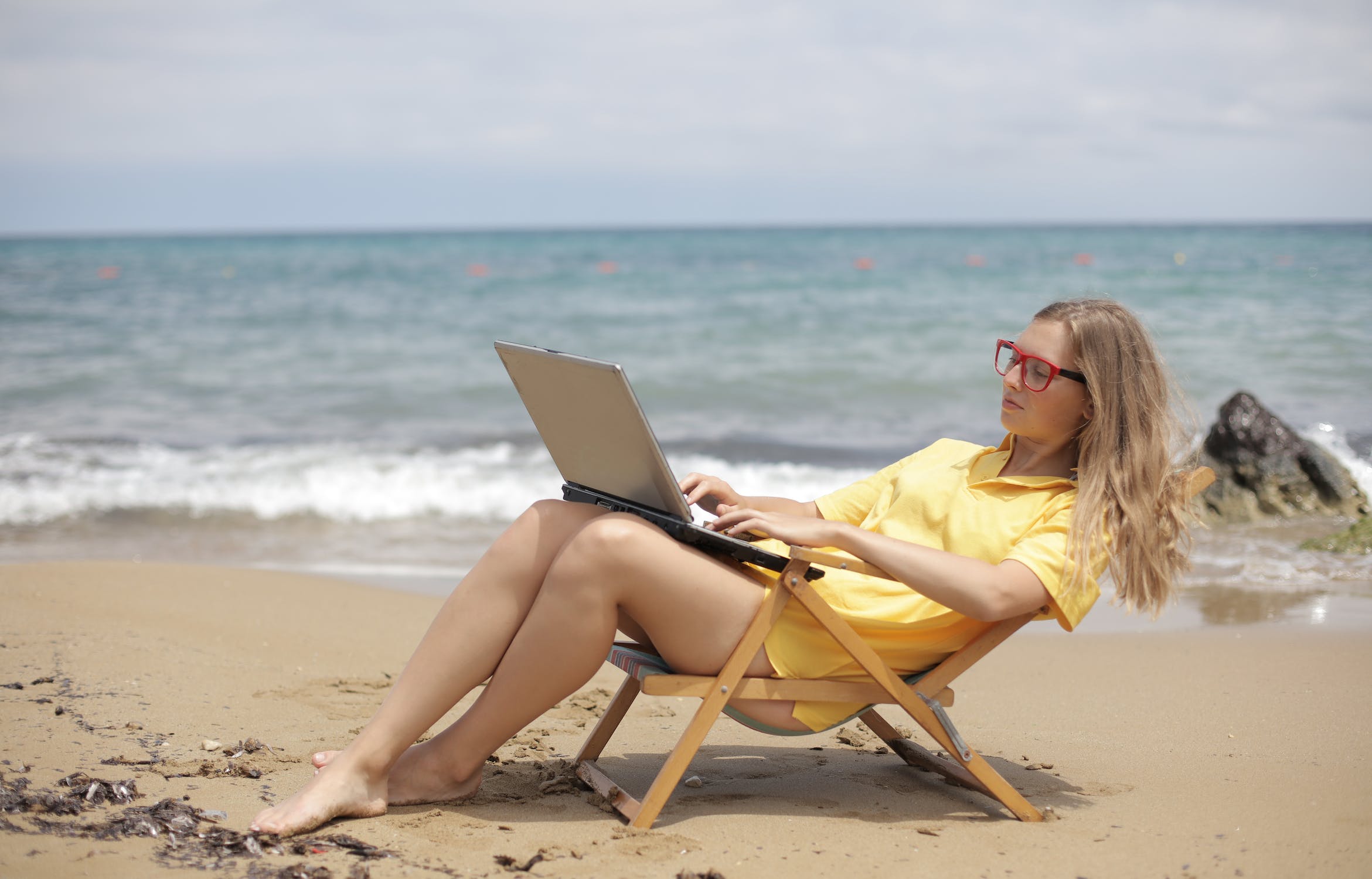
For some it is of course the ultimate dream. Abroad on the beach in an easy chair with a drink within reach, working on your laptop. The ultimate work experience that combines work and holiday feeling. Is this just possible? Is this a dream to pursue? I would say yes and no. In this blog post I try to give a little insight into what I have had to deal with so far.
TLDR
To get straight to the point: No, this is not for everyone! You must be able to work independently, do not easily feel alone, and be prepared to invest in money, time and people. I absolutely do not believe that working from an armchair in the Bahamas will work out. You would have far too many distractions around you, and a good workplace is extremely important. Also know that we may have free transport of people and goods within Europe, but a lot still has to be arranged. Even if your customer and employer are in the Netherlands, you must pay tax on your salary in the country where you live. So make good agreements, because your employer will also have to take action. For example, he must hire an agency that will arrange the salary and taxes in your chosen country. Don’t forget about insurance, the possible reduction of your state pension, your family and friends in the Netherlands, and so on.
Still interested?
Okay, so far the rules side of the story. I will soon be living entirely in France. Last year I worked from the Netherlands and France every other month, also to see whether I like it or not. I was also able to give my client and employer the opportunity to get used to the situation and to arrange any administrative matters. All in all, I am extremely grateful to them for giving me this opportunity. Back to France.
So why do I want to live here? Short answer: I wanted to be closer to my parents. They live with my brother in a large farm, where I have an outbuilding (gîte) in which I live. This way we are practically neighbors with each other, but we are not on each other’s lips. I can turn the volume of my music up to maximum here without it even bothering them.
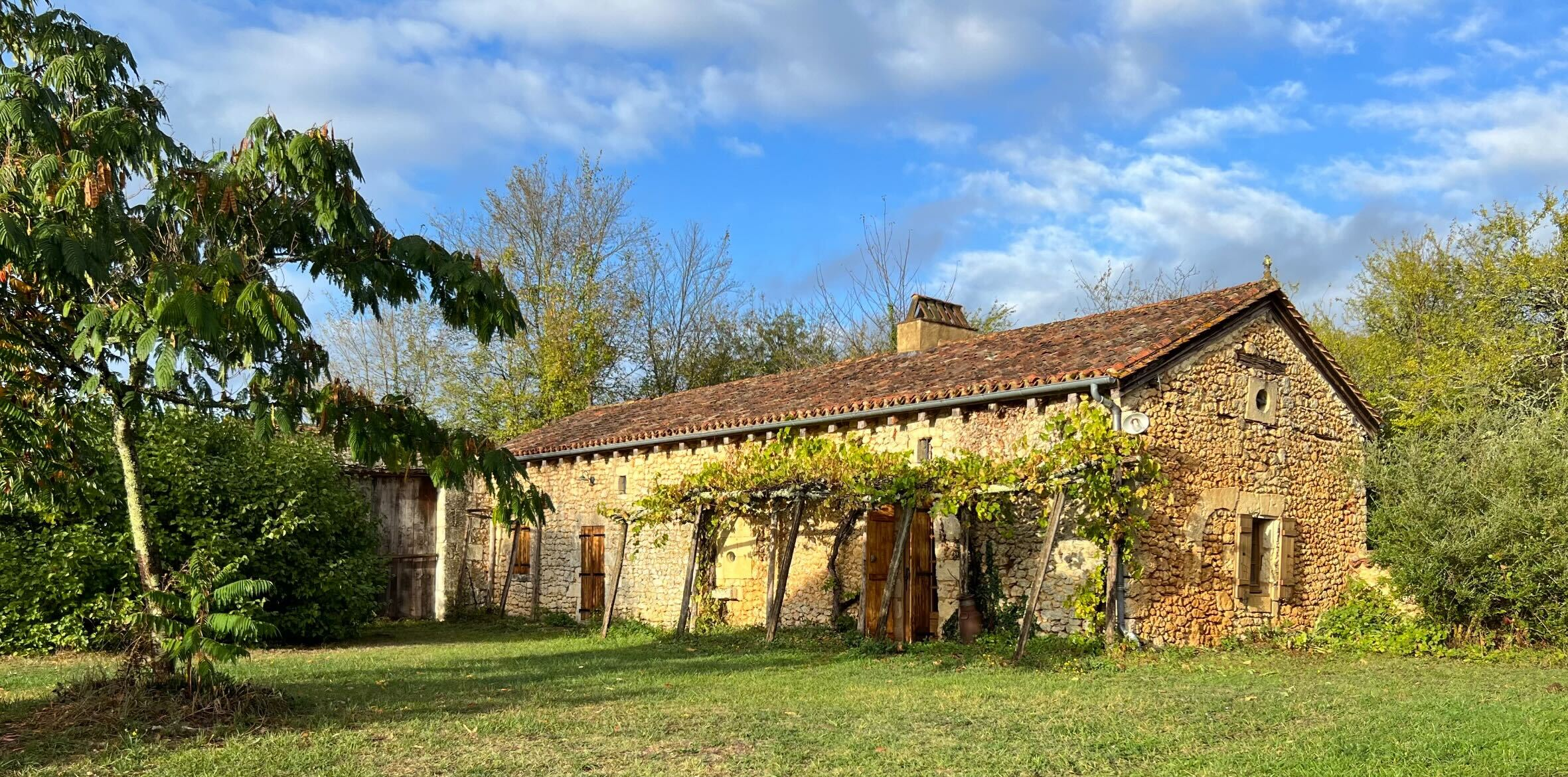
What I did to make it work for me / what would you probably need.
A good workplace with a stable internet connection
Apart from a desk, a good chair and your screens, you must be able to continuously connect with the outside world. First of all, you need a good and stable internet connection. That seems obvious, but keep in mind that the infrastructure in the Netherlands is extremely well organised! If there is a thunderstorm here in the countryside, you can be sure that the power will go out. A battery is not an unnecessary luxury, although your 4G internet will also be out, since that 4G mast also no longer has power. Because all cables hang above the ground here, they can be repaired quickly. However, it may happen that the power is briefly interrupted about 5 times within half an hour. That is not ideal if you are just participating in a conference call.
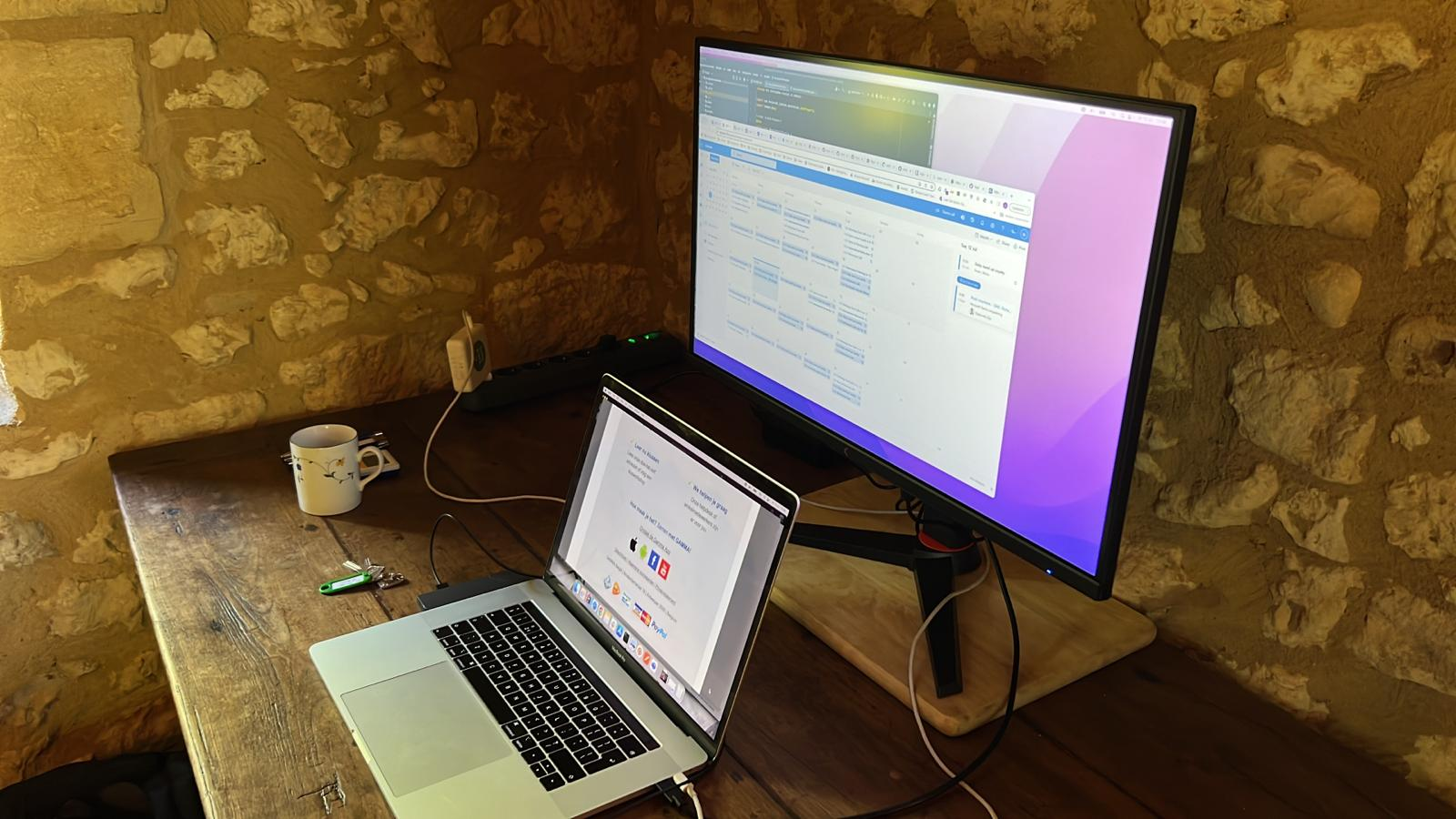
Fortunately, this can be solved. I now have 2 internet connections. The primary connection is a Starlink connection. Starlink provides an internet connection via satellite. Because the satellites fly in a relatively low orbit, the connection is fast and with low latency. By fast I mean that the connection is more than fast enough for video calls, calling, downloading large files and so on. My experience so far is that there is a stable connection.
However, since my work is on the Internet, I didn’t think it was enough to rely entirely on this connection. As a backup, I also have a 4G box where I can make unlimited use of the internet. This connection is also fairly stable during the day, but it often fails in the evening, I suspect this has to do with the number of cell towers in the area. The purchase of all this was around 500 euros in equipment and then another 100 euros per month in subscription costs.

Power
Well, I just wrote about the power supply. Now I am able to cope reasonably well with short interruptions with a UPS (battery), but then it should not last longer than about 10 minutes. Of course, this is often not the case, so in my opinion a more constructive and sustainable solution is needed. However, we live here on an old farm, the main house is still oil-fired and there is a gas tank in the garden to heat the outbuilding (my home). In case there is a real emergency, we also have a petrol-fired generator to provide us with power. This is not very environmentally friendly, so we have together chosen to provide the house with solar panels. We also had a home battery installed, which should be able to help us for a day with normal use.

The current heating system will be replaced by a heat pump. This is not connected to the battery, but to the solar panels and the normal power grid. We have also equipped the house with a charging system for an electric car. Not that we have that now, but if you are focused on the future, you want to have that arranged. Cost of this picture? Expensive… Anyway, with the current prices for gas, oil and electricity, the investment will pay for itself in about 8 to 10 years. It is expected that the whole thing will last approximately 30 years. Another important advantage is that we contribute to a better environment.
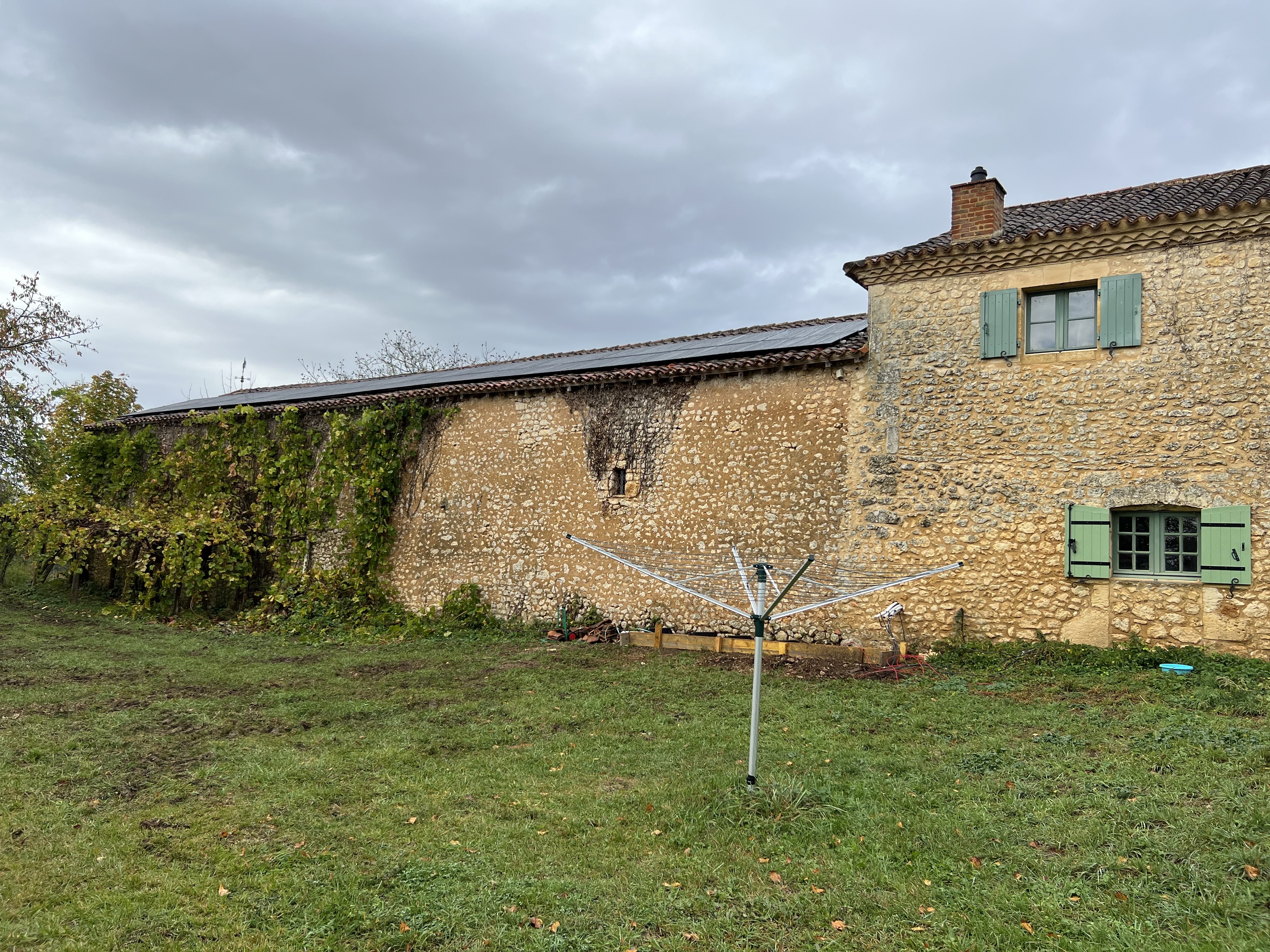
Patience
People work quite hard, also here in France. What you must realize, however, is that for many people an appointment is more of a guideline than an actual appointment. If the plumber (if you have already found one) says that he will come next Monday, you should interpret this as: I may come next Monday. It may be that he or she does not show up for whatever reason. With a bit of luck it will arrive the next day or the following week. In that respect, there is quite a big cultural difference with companies in the Netherlands. If you can deal with it, it shouldn’t be a problem, but remember that it can be quite annoying.
Learn the language!
Perhaps a killer, but extremely important if you want to have contact with people abroad. Most people in rural areas do not speak any language other than (in this case) French. If you make an effort to talk to them, they generally enjoy it and are willing to laugh about your mistakes. Just don’t think you can get away with just speaking English. That is still possible on holiday, since tourist attractions are more internationally oriented, but if you want to live there, that is no longer possible. You really don’t have to master the language perfectly, but some basic skills are recommended.
What do you get in return
It strikes me that I can be quite productive here. I have a workplace where I experience very few interruptions or distractions from my environment. As a developer, it is very nice to be able to work 'in the zone'. However, during the break I walk outside and you are in a different world. It is green, quiet and you can walk for a while without meeting anyone. In addition, it is wonderful for me to go to my parents and brother, have lunch and get away from work for a while. After your break you will be really recharged to go back to it with full force.
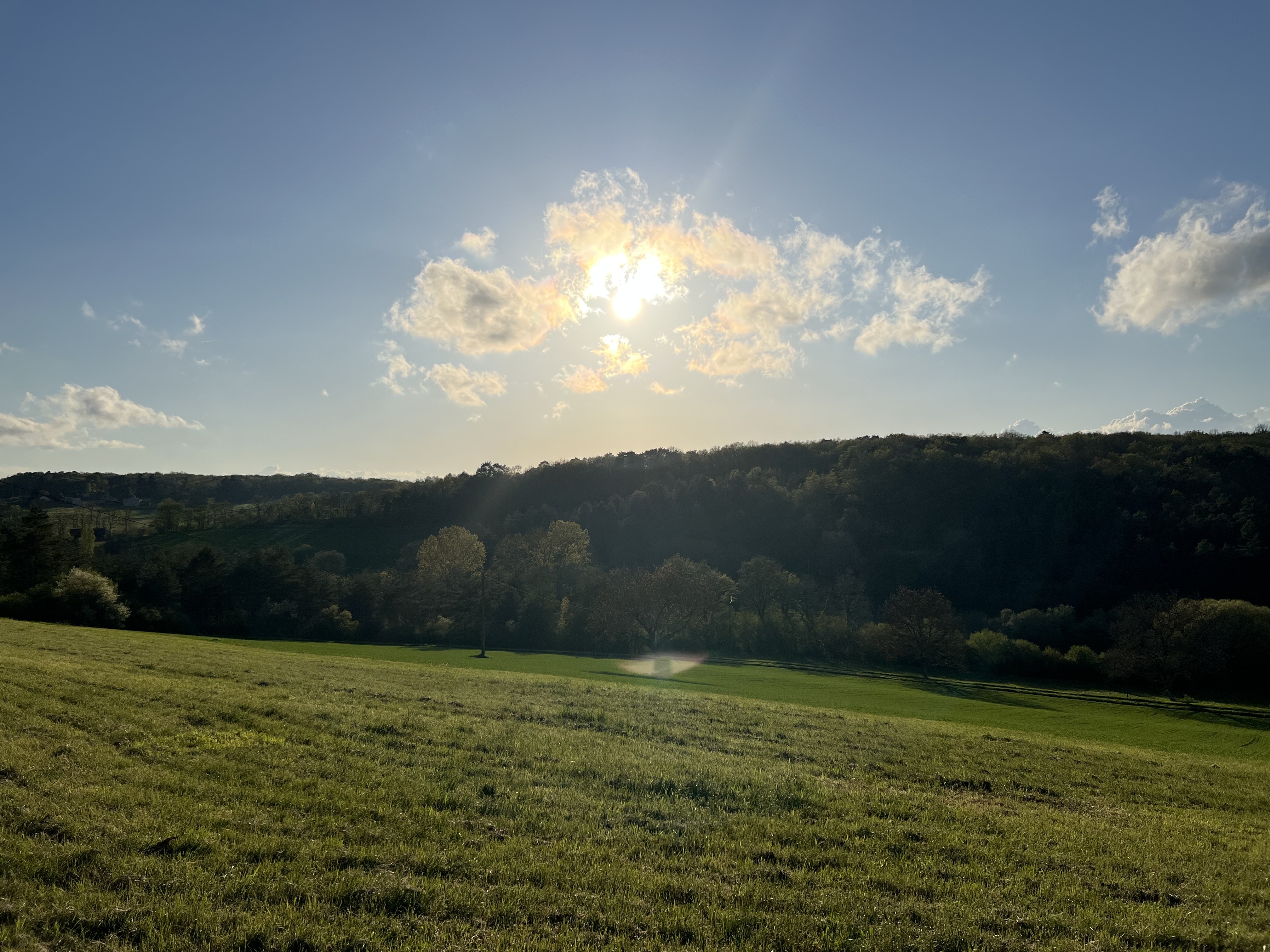
So can I recommend it to you?
From my position I would shout “YES!” In any case, give it a try! Don’t forget to discuss it with your client and employer. Rent a house abroad to see if you like it. Then try each time to see if you can extend the time you are absent. Don’t like it? No problem, at least you tried. This way you never have to think later: “If only I had…”
